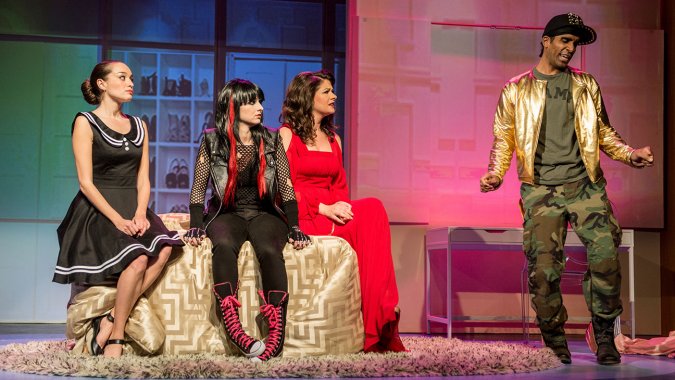It’s been said that The Marriage of Figaro (or, more precisely, The Mad Day, or The Marriage of Figaro, as it was originally titled) was one of the first nails in the coffin of the ancien régime. Its author, the playwright, musician, watch-maker (and inventor), social intriguer (and climber), arms merchant, speculator and all-around adventurer, Pierre-Augustin Caron de Beaumarchais, would have been the last to claim this distinction, since for the better part of his life, he would have been delighted with a hereditary title and the property and income that usually went with it. Beaumarchais was himself a kind of precursor to the French Revolution. He was supernally ambitious, ingenious, and outlandish. His career would be too much for the maddest play; it’s the stuff of a picaresque novel and almost inconceivable before the 18th century. He epitomized the post-Revolutionary man before anyone had the slightest idea the French royal house was in enough trouble (and debt) to create conditions ripe for the upending of the feudal order.
Well, ‘plus ca change,… ,’ as they say. In the narcissistic, celebrity-obsessed 21st century Beaumarchais would fit right in as a kind of chameleon, opportunistic and hyper-talented post-Vanity Fair man. Although the droit de seigneur, the right of a lord to bed a servant of his estate prior to the consummation of her marriage, was one of the first institutions of the feudal state to be eliminated by the first French National Assembly, the political and economic inequalities of a plutocratic U.S. have effectively imposed a different set of droits de seigneur on a number of eccentrically intersecting underclasses. (Literally in some instances: what do the egregious restrictions on abortion in better than half the states in this country amount to, but simply another form of the droit de seigneur, with l’etat—the State—taking the place of the lord?)
For undocumented immigrants who, caught between perfect storms of political and economic circumstances in their home countries the U.S. has contributed to creating which force them to leave, and economic disparities which put them in demand as low-wage workers in the U.S. itself while seducing them to stay with (usually false) promises, outmaneuvering both their new masters and renegade federal agencies like I.C.E., is a daunting obstacle course, full of lethal traps. It would take a character as resourceful as Figaro to successfully negotiate his way through this shiny neon jungle; and for his Susanna—whatever the disclaimers of her betrothed—we know the path would be doubly hazardous. Welcome to the new feudalism, Beverly Hills style (‘swimming pools; movie stars;’ and now undocumented wage slaves). Such is the world writer/librettist Vid Guerrerio has reimagined for Figaro in the early 21st century in ¡Figaro! (90210). The Count (Almaviva in the Beaumarchais/Mozart/DaPonte original) here has become Mr. Conti, a real estate magnate (of course—no doubt we’ve seen his estate in the week-end real estate supplement); Mrs. Conti, an aging actress (perhaps infusing a Down and Out in Beverly Hills flavor). The always randy Cherubino is here reimagined as an Afro-American rapper, ‘L’il B-Man.’
After a workshop run in New York, the Los Angeles Opera has taken on this fresh and wildly imaginative adaptation of the Mozart opera (which manages to be remarkably faithful to the original Mozart score, right down to the recitatives) as part of its “Off-Grand” opera series, presented fully staged (directed by Melissa Crespo) at the Barnsdall Gallery Theatre in Barnsdall Park this week-end. The L.A. Opera will be presenting another, period-appropriate production this coming April; but I can’t think of a better apéritif than this freshly recontextualized staging. As in Mozart’s original, ¡Figaro! (90210) ends in peace and contentment all around—a situation we’re not likely to see for some time, given our (new again!) near-feudal social-political realities. Enjoy it while you can.
[through Sunday, January 18th – performances at 2:00 p.m. and 7:00 p.m., tickets $21-37, Barnsdall Gallery Theatre (Barnsdall Art Park), 4800 Hollywood Blvd., Los Angeles, CA 90027; (213) 972-8001, (323) 644-6275]

